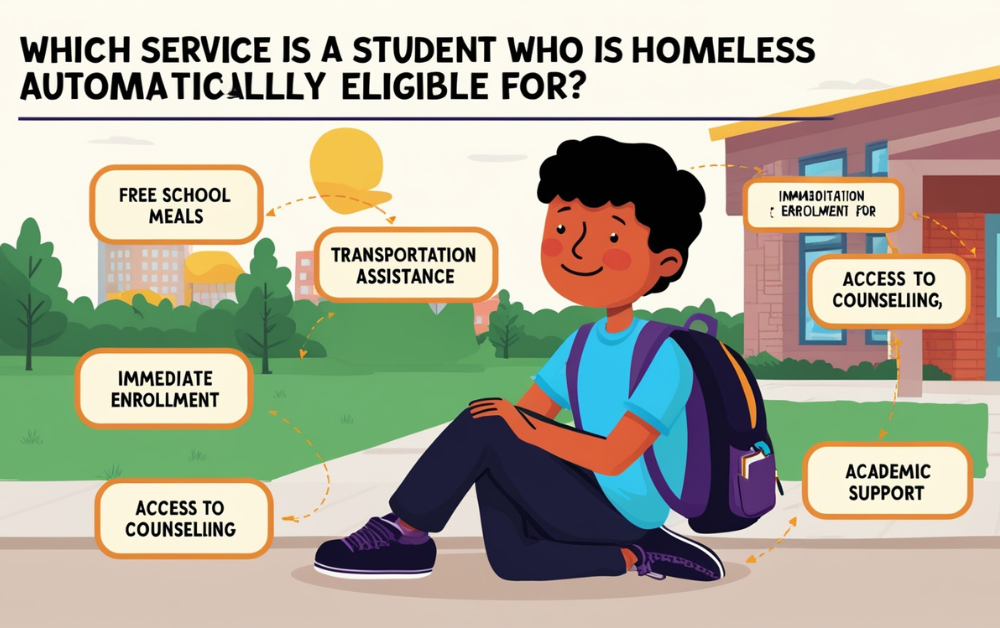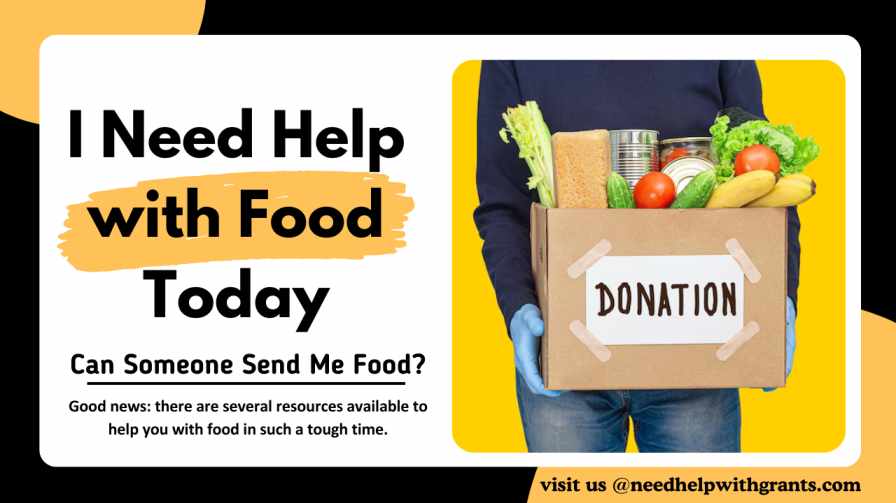A student experiencing homelessness is automatically eligible for a variety of important services that help remove obstacles to education, health, and stability. These include free food, transport, instant school enrollment, and more, without any address or legal protection needs.
Thanks to the McKinney-Vento Homeless Assistance Act, federal law ensures that homeless students can continue their education with minimal disruption.
The McKinney-Vento Homeless Assistance Act
This federal law ensures that children and youth who experience homelessness have access to public education similar to other children.
Key Protections Under McKinney-Vento:
- Immediate enrollment, even without documents
- School stability – remain at the school of origin if in the student’s best interest
- Transportation assistance
- Access to academic support
Every school district has a McKinney-Vento liaison who identifies homeless students and connects them to services.
Automatic Eligibility Explained
Homeless students are automatically eligible for services, eliminating the need for long-term applications or documentation requirements. It also includes:
- Free school breakfast and lunch
- Transportation to their school of origin
- Participation in Title I academic services
- Enrollment without immunization records, birth certificates, or proof of address
Also read: Free Laptops for Students Program
Key Programs Every Homeless Student Can Access
Federal Pell Grants
Students classified as homeless can be independent students, which means that they do not need to provide their parents’ income on FAFSA. This often makes them eligible for maximum Pell grant awards.
FAFSA Simplified for Homeless Youth
The FAFSA form allows homeless youth to declare their position and qualify for more help. A high school or college official may confirm the homeless without the signature of the parents.
College Housing Support
Many colleges now offer:
- Priority access to dorms
- Year-round housing, including during breaks
- Emergency grants for housing crises
Free Medical Care & Insurance
Homeless youth are often eligible for:
- Medicaid
- CHIP (Children’s Health Insurance Program)
This covers doctor visits, mental health, prescriptions, and more.
Food & Clothing Resources
Schools, churches, and community groups often offer:
- Free backpacks and supplies
- Clothing closets
- Food pantries
Also read: Immediate Hotel Vouchers for Homeless
Additional Services Homeless Students May Receive
Free School Meals
Homeless students automatically qualify for free breakfast and lunch under the National School Lunch Program.
Access to School Supplies and Uniforms
Schools often provide essential commodities such as notebooks, pens, backpacks, and uniforms to the homeless students.
Counseling and Emotional Support
Many districts offer students counseling services to help students deal with trauma, anxiety, or homelessness.
Academic Support Services
Additional support is often provided to meet tuition, post-school programs, and grade-level standards.
College Support Programs for Homeless Youth
FAFSA and Independent Student Status
Homeless youth under 24 years of age are considered independent students for FAFSA, which helps them reach federal assistance.
College Dorms During Breaks
Many colleges allow homeless students to stay in the dorm during holidays and summer breaks when other students go home.
TRIO and GEAR UP Programs
Federal outreach programs such as Trio and Gear Up offer advice, college preparation, and assistance for underprivileged youth.
Tips for Students to Access These Services
Talk to the Homeless Liaison
Every school district must appoint a liaison. They’re your go-to for:
- Enrollment help
- Transportation arrangements
- Getting school supplies or food
Keep School Attendance Records
Even without a stable address, showing you’ve been attending school regularly helps with:
- Verifying eligibility
- Securing scholarships
- Getting priority housing in college
Challenges Faced by Homeless Students
Even with these services, homeless students face major barriers:
- Frequent school transfer disrupts learning
- Social stigma and bullying
- Lack of quiet study space
- Old absence due to transportation or health issues
- Mental health struggles with instability and trauma
Understanding these challenges is the first step toward advocating for better support systems.
Is a homeless student automatically eligible for Medicare?
A homeless student is automatically eligible for federal student aid, which includes various financial aid options for education. To receive this, they must complete the Federal Student Financial Aid Application (FAFSA). Other options, such as Medicare and health insurance, are not automatically available to them because they are homeless.
What is the federal program for homeless students?
The Education for Homeless Children and Youth (EHCY) program, established in 1987 under the McKinney-Vento Homeless Assistance Act, provides basic access to education for approximately 1.4 million children and youth experiencing homelessness.
FAQs
What is the first step for a homeless student to get help?
They should contact the homeless liaison at their school or school district to be identified and begin receiving services.
Can homeless students go to any school they want?
Yes, under the McKinney-Vento Act, he has the right to stay in his school or attend a local school, where he is living temporarily.
Are unaccompanied homeless youth also eligible?
Yes, youth who are not in the physical custody of a parent or guardian are still protected under McKinney-Vento and are eligible for all associated services.
Can homeless students attend college?
Yes, and they may be considered independent on the FAFSA, making them eligible for maximum financial aid. Many colleges also have support programs.
Is transportation to school always provided?
Yes. Schools must provide free transportation to and from the school of origin for homeless students.
Do students have to “prove” they’re homeless?
No. Schools use informal documentation or liaison verification; extensive documentation is not required to access services.
Conclusion
A student experiencing homelessness is automatically eligible for a range of life-changing services—educational, nutritional, housing, and emotional. Thanks to federal protections like the McKinney-Vento Act and support from schools and communities, these students can still thrive. The path may be harder, but the tools are in place to help them succeed—what’s needed now is awareness.



